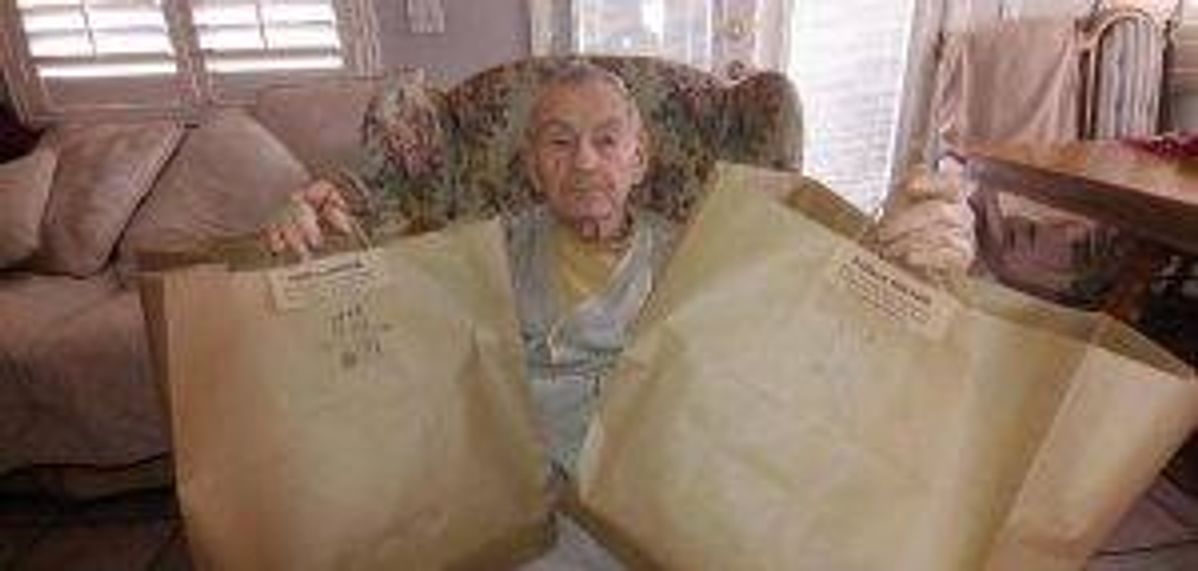Ways Programs for Older Adults In Need Are Adapting Due to COVID-19
Creativity abounds, from pop-up food pantries to virtual mental health checks
Now that the coronavirus pandemic means at-need older adults can't leave their homes or have visitors, programs and services assisting them have had to radically adapt. Fortunately, many nonprofits have risen to the challenge, finding new, remarkable, creative and compassionate ways to deliver sustenance and sociability.

In addition, Congress and the Trump administration have provided bipartisan support to address these critical needs.
Absolutely no one, whether in Washington, D.C. or Washington, Mo. had a playbook for what we are experiencing right now. For example, no one predicted that millions of older adults who routinely received their meals together in a social service setting would suddenly be faced with its closure.
Our Commitment to Covering the Coronavirus
We are committed to reliable reporting on the risks of the coronavirus and steps you can take to benefit you, your loved ones and others in your community. Read Next Avenue's Coronavirus Coverage.
And the new world we're now in has led to rising costs and difficulties for some nonprofits providing assistance, issues that are only likely to worsen.
In a March 30 survey of its members, the National Association of Nutrition and Aging Services Programs found that 78% of programs with increased home-delivered meal recipients said their food costs were also rising. And 67% reported having food-supply shortages.
In Nevada, there's now a "Delivering with Dignity" consortium comprised of six groups delivering 4,000 meals to the doorsteps of the most vulnerable older adults in their community.
With this perilous backdrop, here are some examples of how programs and their kindhearted volunteers have stepped up:
The FeedMore WNY program in Buffalo, N.Y. has created extra pop-up food pantries and mobile distribution opportunities to meet its community's growing need for nutrition. It also created 320 emergency boxes and hired temporary drivers to distribute them to older adults unable to leave their homes.
Several former congregate programs in Arizona, Nevada and Texas have converted to providing older adults "grab and go" meals. Some provide two meals per day, six or seven days a week.
Combining Efforts to Serve People Now
In certain cases, local nonprofits are combining efforts. In Nevada, there's now a "Delivering with Dignity" consortium comprised of six groups delivering 4,000 meals to the doorsteps of the most vulnerable older adults in their community.
Ohio's Wood County Committee on Aging program, anticipating a worsening crisis last week completed the assembly of 800 boxes with a two-week supply of shelf-stable meals for all its home-delivered-meals clients. Recipients are asked to have a table or surface inside the door, or on their porch, where a meal can be delivered. The delivery people must also have either a visual sighting or voice interaction with the people receiving the food.
Isolation has become a significant health concern for these older adults. Consequently, many programs, such as one in Arizona, have instituted companion reassurance calls to homebound older adults.
In Buffalo, doctoral psychology students supervised by a licensed psychologist program have begun offering virtual mental health checks to let isolated older adults talk about their anxiety or depression and possibly offer interventions.
Telehealth to the Rescue
And some programs are instituting telehealth, using video calls, phone calls and emails to check in with clients.

For example, the Serving Seniors nutrition program in San Diego is offering telephonic case management for all its nutrition clients. In the near future, working with West Health (a group of nonprofits working to lower health care costs for older adults), it will launch a telehealth project providing access to emergency room doctors who'll help triage symptoms related to COVID-19.
Elder abuse can happen at any time, but it is increasingly prevalent when older adults are isolated and alone with their abusers. To ease reporting, in Massachusetts, the Elder Services of Merrimack County has established a 24/7 phone number for Adult Protective Services. It will take calls reporting abuse, no matter where in the state the report comes from or where the older person lives.
The need for personal protective equipment (PPE) has been growing in many facilities serving older adults, especially long-term care facilities. So, Chairwoman Shirley Wiggins and other members of the National Silver Haired Congress (a nonpartisan group advocating for older adults' rights and benefits) has raised funding to purchase PPE for four long-term care facilities in North Carolina. The group hopes to continue raising money for more facilities needing the equipment.
How Congress and the President Are Helping
On a national level, members of Congress led by Rep. Rosa DeLauro (D-Conn.) recently allotted $250 million in emergency funds to senior nutrition programs including Meals on Wheels and Native American nutrition services. Just a week later, another $500 million was appropriated in the CARES Act.
These local and national efforts will continue as long as the coronavirus crisis does, thanks to the ingenuity, resourcefulness and creativity of people behind programs from America's aging network serving older adults.

